Irène Schweizer – die erste Frau im freien Jazz Europas
Irène Schweizer (2 June 1941 – 16 July 2024) was a Swiss jazz and free improvising pianist. She was born in Schaffhausen, Switzerland.
Ich sehe: sie war beste pianistin – erste europäische jazzpianistin – Ikone des Freejazz – im Hintergrund höre ich sie über Kopfhörer (mit Louis Moholo) – sie hat mehr erreicht und beeinflusst, möchte man glauben, als sie selbst je für möglich hielt: sie nannte sich Amateurin, arbeitete als Sekretärin – sie war Fan von Don Cherry, Carla Bley und Thelonious Monk: und wollte selbst hinschmeißen, als sie 1966 Cecil Taylor live erlebte (wie er sein eigenes Energiefeld darstellte).
Sie war Mitbegründerin des Intakt Record Labels – gern hätte sie ihre Konzerte am Telefon gegeben, sie galt als ruhig, besonnen und zurückhaltend, was die Worte angeht, dafür umso spielfreudiger und energiegeladener auf ihrem Instrument:
Freejazz war in ihrem Denkfeld keine Angelegenheit der Virtuosität, sondern der Poesie – das kommt bei all ihren mitreißenden Aufnahmen zum Tragen – hör dir die Aufnahmen von Irène Schweizer an, du wirst reichlich belohnt: da du im Spiel bleibst und gebannt zuhörst und nicht rausgekegelt wirst.
Du kannst die Aufnahmen annehmen, wie sie gelistet sind und hören: es nimmt gefangen – es reißt mit und öffnet die Sinne: beileibe keine Musik einer Amateurin, wie sie sich selbst zurückhaltend nannte, im Gegenteil die Musik einer ganz eigenen Profession und Passion.
Sie spielte mehr als beeindruckend, Dieses unbändige Gefühl der Freiheit betitelte Christian Broecking seine Biografie über Irene Schweizer treffend – das Klavier selbst scheint sich zu verbiegen, zu verändern, sich auszubreiten, sich zu vergrößern unter ihrer Regie, die gesamte Bandbreite menschlicher Ausdrucksmittel werden durch es transponiert – eine Wucht manchmal, eine ebenso zurückgenommene und abwartende Stilltonvariation, wo Töne das Sprechen lernen.
- wenn da wer geht, bekommt alles, was als Aussage oder Werk überliefert wurde, zusätzlich Gewicht.
Irène Schweizer hinterlässt mehr als 75 Aufnahmen, welche davon explizit in jede Sammlung gehören, vermag ich nicht mehr zu sagen – deuten wir es kurz ins Analoge um: welche der Aufnahmen in jede Bibliothek gehören – Musik ist, von Schweizer gespielt, auch Literatur, der Sinne oder wie sie es deutlich macht: Poetik oder Poesie – das hast du in all den Aufnahmen live-haftig dargestellt und erzählt: große Literatur mit den Baukästen tonaler Möglichkeiten aufgestellt, hingestellt, zusammengestellt – gleich auch ein andauerndes Zeugnis enormer Aussagekraft und Intensität.
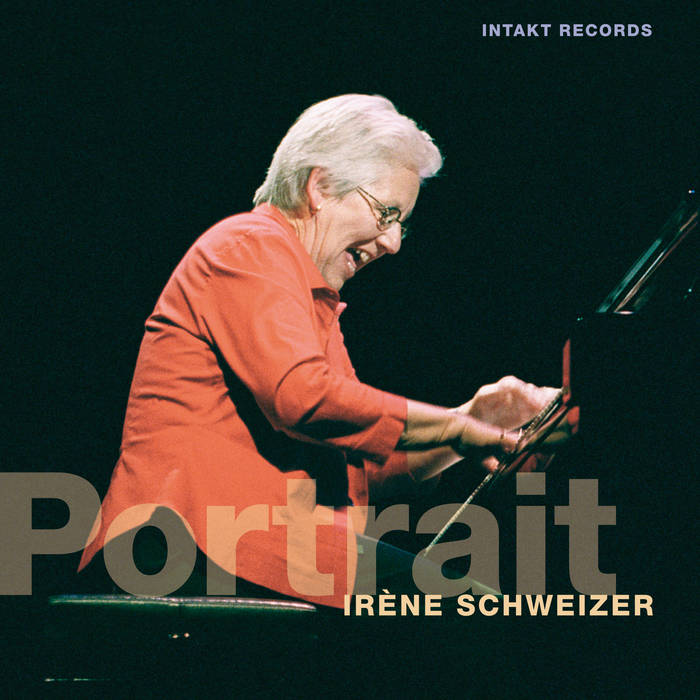
von IRENE SCHWEIZER et al.
rène Schweizer, Piano
Maggie Nicols, Voice – Co Streiff, Sax
Omri Ziegele, Sax Fred Anderson, Sax
George Lewis, Trombone – Joëlle Léandre, Bass
Günter Sommer, Drums – Han Bennnik, Drums
Andrew Cyrille, Drums – Pierre Favre, Drums
Louis Moholo, Drums – Hamid Drake, Drums
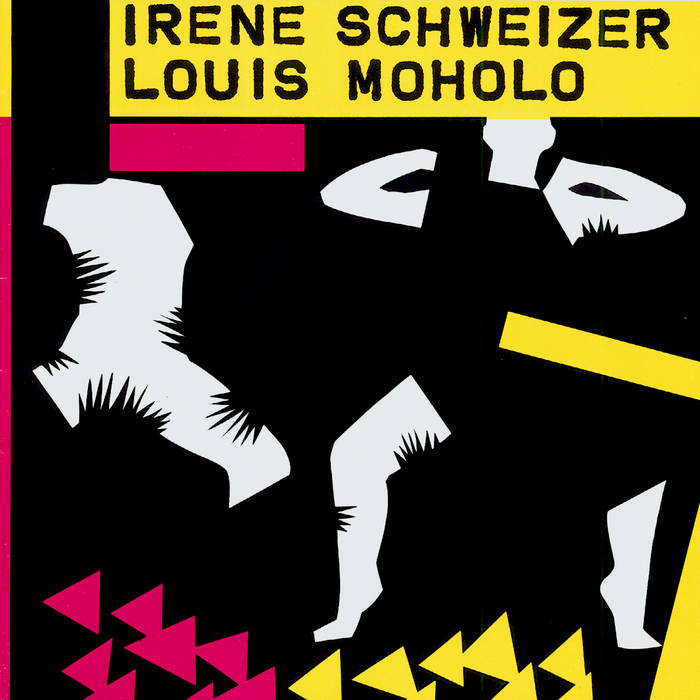
von Irène Schweizer – Louis Moholo
Das Zusammenspiel mit Louis Moholo beschreibt Ulrich Stock als Öffnung Irene Schweizers für jazzmusikalische Einflüsse jenseits des Boogie-Woogie-Tanzbetriebs und merkt gleich auch die Problematik des besprochenen Dokumentarfilms „Irène Schweizer“ an: der nervöse Duktus des Films passt so gar nicht zur ruhigen, konzentrierten Musikerin. Das empfindet Ulrich Stock besonders in der Südafrikanischen Episode mit Louis Moholo – es entsteht statt der Immanenz auf wunderbare Konzertmomente eine Bildersafari. Die Aufnahme mit Louis Moholo dagegen entschädigt für alles einmal mehr.
Das Album Portrait erschien 2005 und findet Erwähnung in Fräulein Schweizer erreicht den Gipfel von Ulrich Stock, sie erschien parallel zum Konzert im besten Konzerthaus der Welt in Luzern, dem KKL, als Weihe und Gipfelerklimmung der Irène Schweizer – Daniel Barenboim, Simon Rattle, Kent Nagano, sie alle haben auf eben dieser Bühne gestanden und sind des Lobes voll. Ein Album mit unterschiedlichen Duo-Besetzungen, geeignet für eine erste Annäherung und anschließender Vertiefung in die poetische Herangehensweise von Irène Schweizer.
In Assoziationen gedacht, in Schleifen, in Pirouetten – die erzählerischen Möglichkeiten angenommen und umgesetzt – etwas daraus hervorgehen lassen : warten : stehen : gehen : warten : sehen : los – drauflos und wieder los, es gibt immer etwas zu erzählen – wer das im Literarischen versucht, weiß, es gibt für den geschriebenen Part auch ein Zurück, die Möglichkeit zum Nachbessern, zum Verändern : sie aber spielte es live : Spontanpoesie ohne Zurück. Sie erzeugte dabei Aufnahme für Aufnahme mit eigenem Ausdruck, mit den Ellbogen auf der Tastatur, mit Wischlappen in den Saiten, mit Blues im Repertoire, mit Zitatenraum im Gehörten, mit Dynamik, Beschleunigung und eigenem Schnitt – Kompositionen in Echtzeit – mitreißend, gigantisch.
Einsehbar in den Artikeln von Ulrich Stock: in der Zeit Avantgardistin, Feministin, Sekretärin, Nixe und auf Woz Irène Schweizer: Die erste Frau am Klavier sind weitere Empfehlungen, daraus ziehen wir die Soloaufnahmen Wilde Señoritas und Hexensabbat, beide zusammen erschienen auf Bandcamp und The Storming of the Winter Palace, eine Live-Aufnahme vom Moers-Festival 1986, versehen mit dem Preis der Deutschen Schallplattenkritik und in der FAZ gefeiert: ein großer Moment frei improvisierter Musik; die Zuhörer spendeten endlose Ovationen, waren fassungslos, gerührt, ja glücklich wie die Protagonisten selbst, die sich nach dem magischen Prozess der spontanen Interaktion in den Armen lagen.
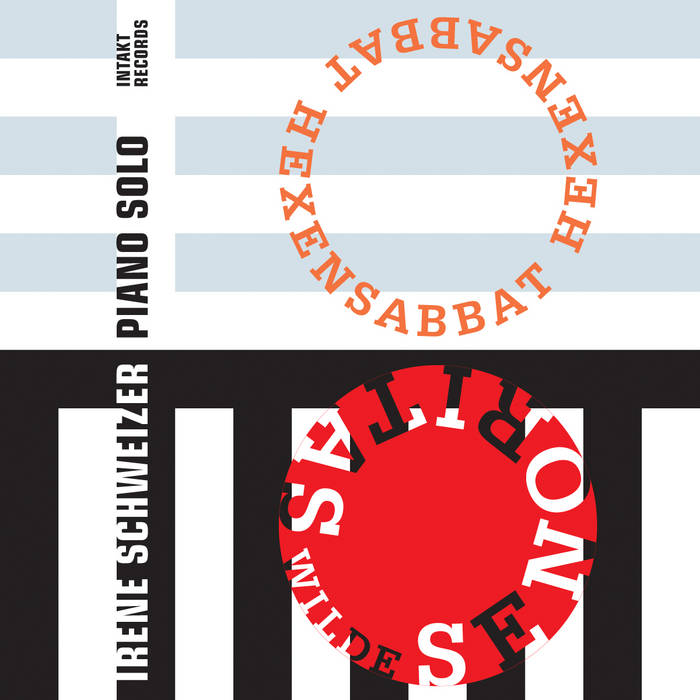
by IRENE SCHWEIZER PIANO SOLOS

by Irène Schweizer – George Lewis – Maggie Nicols – Joelle Leandre – Günter Sommer
Irène Schweizer: Piano
George Lewis: Trombone
Maggie Nicols: Voice
Joëlle Léandre: Bass
Günter Sommer: Drums
Ulrich Stock verweist auf: Christian Broecking Dieses unbändige Gefühl der Freiheit (2016) – in Englisch auch als E-Book erhältlich This Uncontainable Feeling of Freedom. Irène Schweizer (bei epubli, kindle, thalia)
Weitere Referenzen findest du bei Intakt Records Biografische Angaben, die Cd-Releases von Intakt Records oder auf Bandcamp, hervorheben lassen sich auch die vier Les Diaboliques Aufnahmen. Auf Radiohörer findest du den Nachruf des Labels Intakt Records.
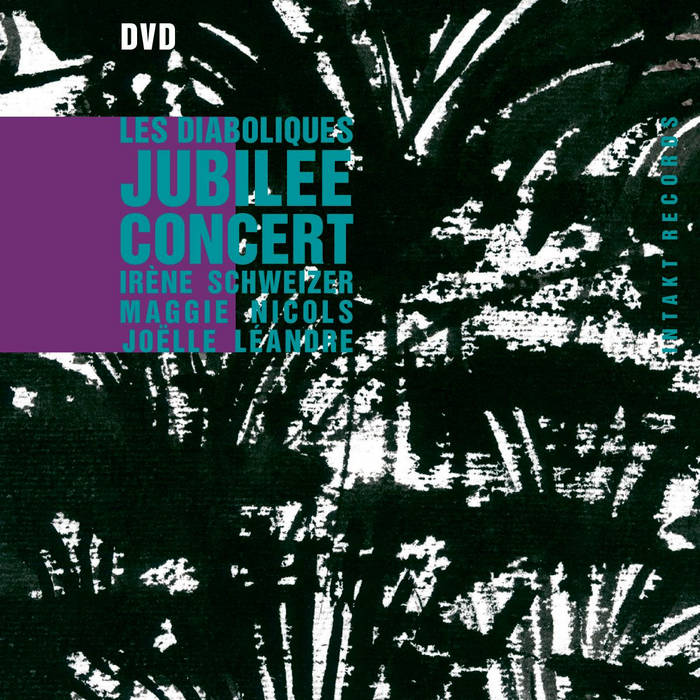
by LES DIABOLIQUES – IRENE SCHWEIZER, MAGGIE NICOLS, JOELLE LÉANDRE
2009
Irène Schweizer: Piano
Maggie Nicols: Voice
Joëlle Léandre: Bass
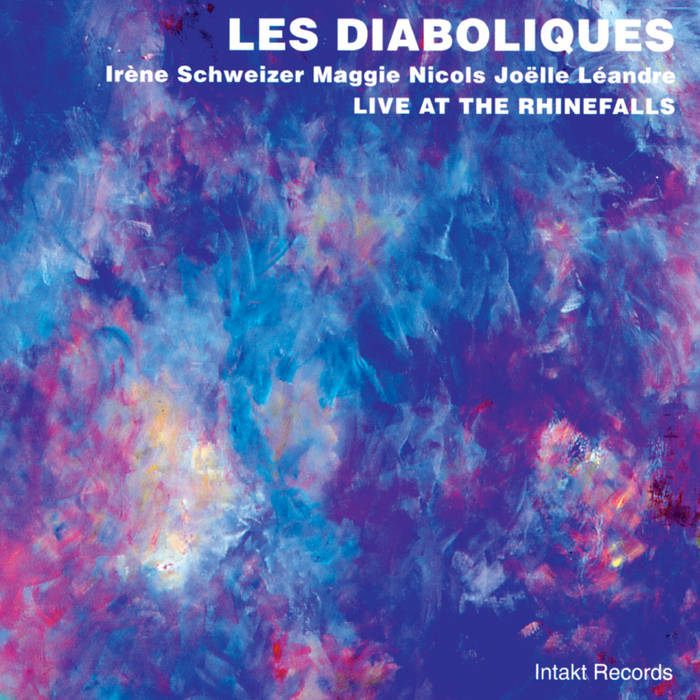
by LES DIABOLIQUES with Irène Schweizer, Maggie Nicols and Joëlle Léandre
2000
Irène Schweizer: Piano
Maggie Nicols: Voice
Joëlle Léadre: Bass
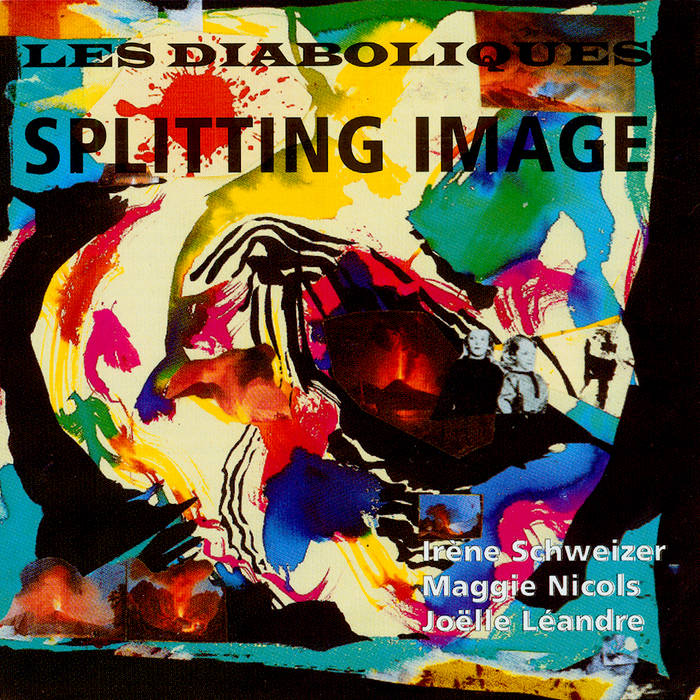
by LES DIAOLIQUES with Irène Schweizer, Maggie Nicols and Joëlle Léandre
1997
Irène Schweizer: Piano
Maggie Nicols: Voice
Joëlle Léandre: Bass
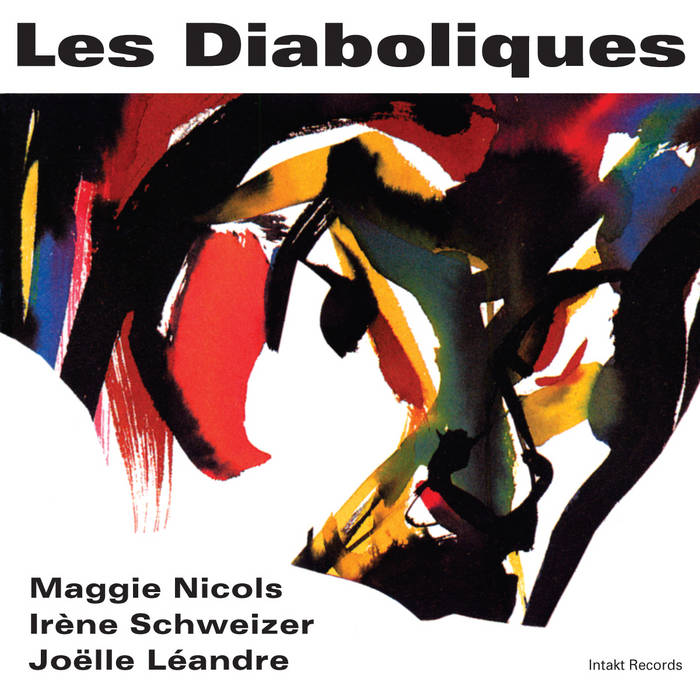
by LES DIABOLIQUES with Irène Schweizer, Maggie Nicols and Joelle Leandre
1994
Irène Schweizer: Piano
Maggie Nicols: Voice
Joëlle Léandre: Bass
Sie vermag so formbewusst zu improvisieren, dass spontane Ideen über den Moment hinaus Gestalt bewahren. Sie fügt kleine, farbige Motive, die mal an Ragtime, mal an Bartók, mal an die Savanne erinnern, zu rhythmischen Kaskaden, bis alle im Saal unwillkürlich mit dem Kopf wippen. Ulrich Stock
Irène Schweizer – die erste Frau im freien Jazz Europas – english version
I see: she was the best pianist – the first female European jazz pianist – the icon of free jazz – in the background I can hear her over headphones (with Louis Moholo) – she achieved and influenced more, one would like to believe, than she herself ever thought possible: she called herself an amateur, worked as a secretary – she was a fan of Don Cherry, Carla Bley and Thelonious Monk: and wanted to quit herself playing when she saw Cecil Taylor live in 1966 (how he presented his own energy field).
She was a co-founder of the Intakt Record label – she would have liked to give her concerts over the phone, she was considered quiet, level-headed and reserved when it came to words, but all the more playful and energetic on her instrument:
In her field of thought, free jazz was not a matter of virtuosity, but of poetry – this comes across in all her rousing recordings – listen to Irène Schweizer’s recordings, you will be richly rewarded: as you stay in the game and listen spellbound and are not bowled out.
You can accept the recordings as they are listed and listen to them: it captivates – it sweeps you away and opens your senses: by no means the music of an amateur, as she reservedly called herself, on the contrary, the music of her very own profession and passion.
She played more than impressively, Christian Broecking aptly titled his biography of Irène Schweizer This Uncontainable Feeling of Freedom – the piano itself seems to bend, change, expand, enlarge under her direction, the entire range of human means of expression are transposed through it – a force sometimes, an equally withdrawn and waiting still tone variation, where tones learn to speak.
- When someone leaves, everything that has been handed down as a statement or work takes on additional weight.
Irène Schweizer left behind more than 75 recordings, which of them explicitly belong in every collection, I can no longer say – let us briefly interpret it analogously: which of the recordings belong in every library – music, played by Schweizer, is also literature, of the senses or as she makes it clear: poetics or poetry – you have presented and told this in all the recordings in a live-like manner: great literature with the building blocks of tonal possibilities set up, placed, put together – at the same time also a lasting testimony of enormous expressiveness and intensity.
The album Portrait was released in 2005 and is mentioned in Fräulein Schweizer erreicht den Gipfel by Ulrich Stock; it was released parallel to the concert in the best concert hall in the world in Lucerne, the KKL, as a consecration and summit climb of Irène Schweizer – Daniel Barenboim, Simon Rattle, Kent Nagano, they have all stood on this very stage and are full of praise. An album with different duo line-ups, suitable for an initial approach and subsequent immersion in Irène Schweizer’s poetic approach.
Thinking in associations, in loops, in pirouettes – accepting and realizing the narrative possibilities – letting something emerge from it : wait : stand : walk : wait : see : go – go on and go again, there is always something to tell – anyone who tries this in literature knows that there is also a way back for the written part, the possibility to improve, to change : but she played it live: spontaneous poetry with no going back, she created recording after recording with her own expression, with her elbows on the keyboard, with wipers in the strings, with blues in the repertoire, with quotation space in what she heard, with dynamics, acceleration and her own editing – compositions in real time – rousing, gigantic.
You can read the articles by Ulrich Stock: in Die Zeit Avantgardistin, Feministin, Sekretärin, Nixe and on Woz Irène Schweizer: Irène Schweizer: Die erste Frau am Klavier are further recommendations, from which we draw the solo recordings Wilde Señoritas and Hexensabbat, both released together on Bandcamp and The Storming of the Winter Palace, a live recording from the 1986 Moers Festival, awarded the German Record Critics‘ Prize and celebrated in the FAZ: a great moment of free improvised music; the listeners gave endless ovations, were stunned, moved, even happy just like the protagonist themselves, who lay in each others arms after the magic process of spontaneous interaction.
Ulrich Stock also refers to: Christian Broecking Dieses unbändige Gefühl der Freiheit (2016) – also available in English as an e-book This Uncontainable Feeling of Freedom. Irène Schweizer (at epubli, kindle, thalia) )
Further references can be found at Intakt Records Biographical information, the Cd-Releases of Intakt Records or on Bandcamp, the four Les Diaboliques recordings can also be highlighted. On Radiohörer you can find the obituary of the label Intakt Records.
She is able to improvise with such formal awareness that spontaneous ideas take shape beyond the moment. She combines small, colourful motifs, sometimes reminiscent of ragtime, sometimes of Bartók, sometimes of the savannah, into rhythmic cascades until everyone in the hall is involuntarily bobbing their heads. Ulrich Stock